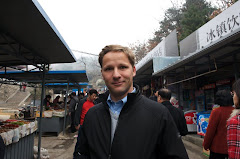The scientists sought to compare successful teams with less successful ones, and figure out exactly how they differed in composition. They focused on a few academic fields, defining successful teams as those whose papers were most frequently cited. They also looked at the annals of Broadway musicals over the past century and studied how the mix of composers, lyricists, directors and so forth correlated with the success of the production, measured in terms of the number of weeks a production ran before closing.
What they found was that the most successful teams did two things right. First, they attracted a mixture of experienced people and those who were newcomers to whichever field they were in. That's not surprising—the need for fresh blood has long been recognized as an important ingredient in success. The second criterion, though, was far less obvious. What successful teams had in common was at least a few experienced members who had never collaborated with each other. "People have a tendency to want to work with their friends—people they've worked with before," says Luis Amaral, a physicist at Northwestern and a coauthor. "That's exactly the wrong thing to do."
Source: True Teamwork, Fred Guterl, Newsweek International.





